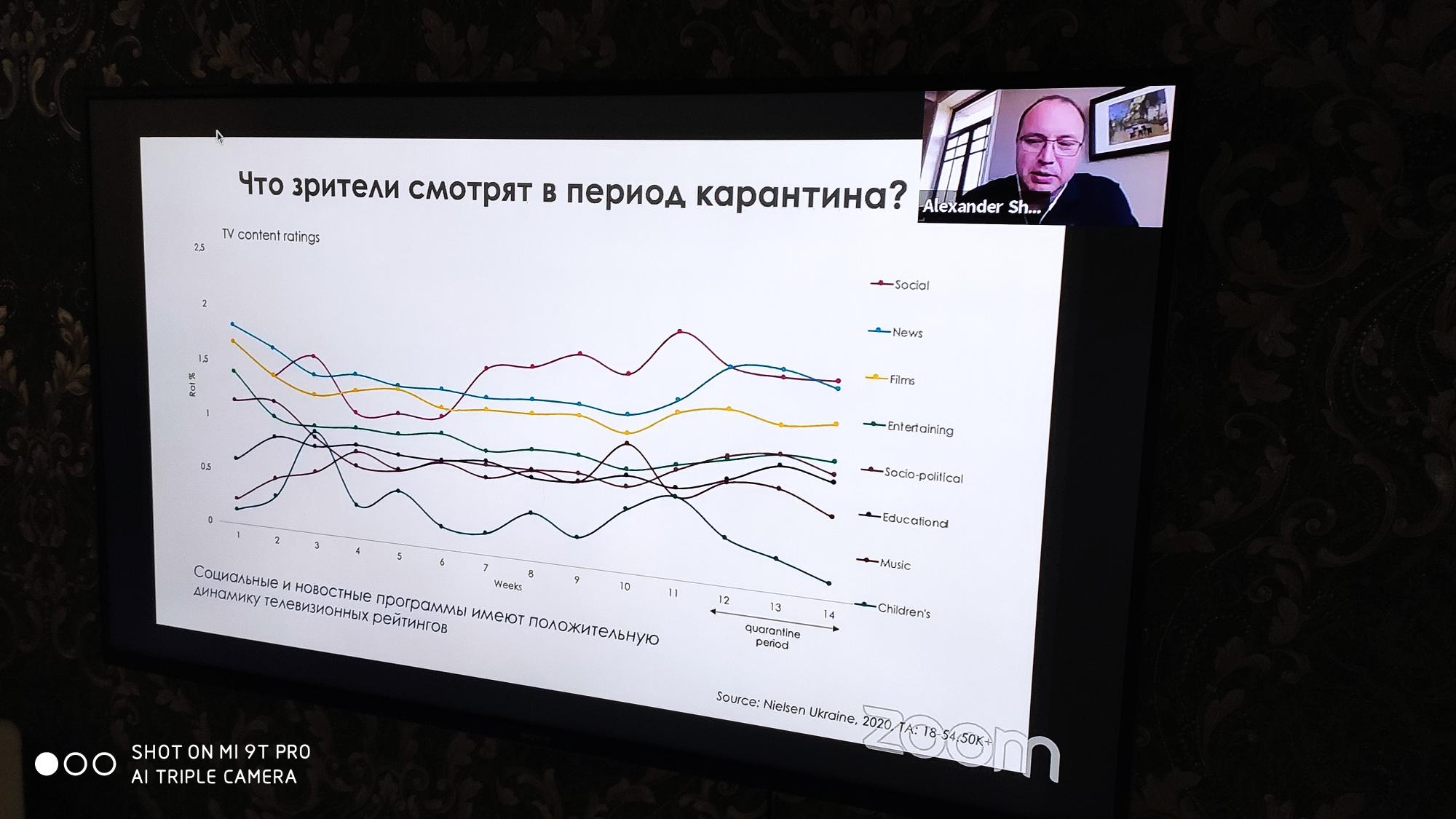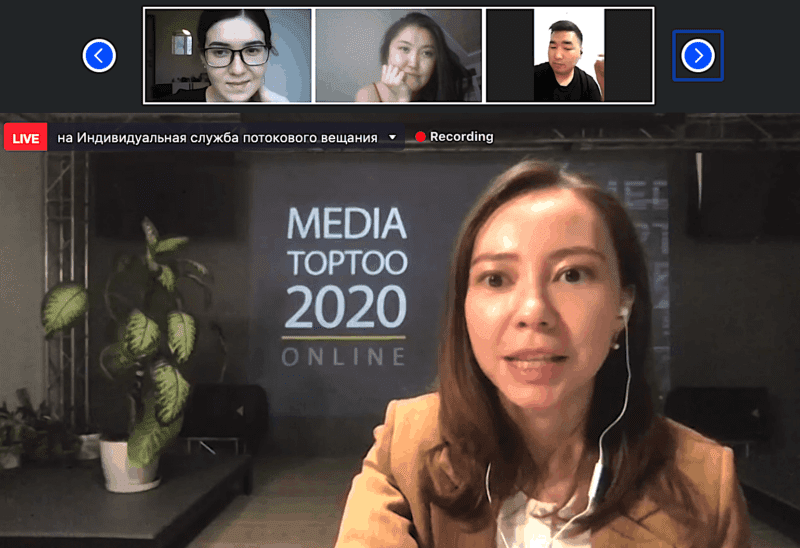The annual Media Toptoo (“Media Gathering”), hosted by Internews in Kyrgyzstan, is the leading event for news professionals in the country. Now in its third year, for the first time the event was held completely online, in order to adapt to the extraordinary circumstances of the COVID-19 crisis. While an enormous success – 83% of participants rated their experience “very positive” and 53% even indicated they’d like to see it continue online in the future – it was a bittersweet reminder of the challenges facing media in Kyrgyzstan. Participants used the gathering to chart a path forward.
COVID-19 has changed the media market in Kyrgyzstan
In late March, Kyrgyz media began a difficult period of work during the pandemic response. Media moved fully online, with journalists working from home. More challenging was the government’s refusal to provide accreditation to journalists during the early quarantine period.

Many media outlets experience notable audience growth, but faced a severe drop in revenue at the same time, and difficulties accessing information from authorities.
According to a survey conducted by the USAID-funded Media-K project, the advertising budgets of all Internews partner media outlets fell substantially in April due to the quarantine.
For example, there was a 36% decrease in advertising revenues at project partner Kaktus Media and a 48% decrease at 24.kg. OTRK lost 60% of its advertisements; Kloop.kg lost 70%; and April TV lost 80%. TV1.kg has also seen nearly a 90% decline in advertising budgets.
In early May, independent newsrooms and broadcasters were allowed to fully resume operations, after a one and a half-month ban and a remote-only workflow.
At Media Toptoo, faced with the market decline, the Independent Union of Journalists proposed a series of anti-crisis measures, including temporary tax deductions, loans, and subsidized mailing and broadcasting costs for media outlets.
Internews in Kyrgyzstan adopts emergency measures to support media outlets
The pandemic has caused financial crises and operational challenges, and presents huge risks for access to information, restrictions on freedom of expression, and an increase in the volume of fake news. However, it has also been an opportunity to rethink workflows, optimize resources, transition most processes online, and increase efficiency.
“We are glad that the majority of our partner media outlets took the high road during this crisis and showed how to work even in the difficult conditions of forced home isolation,” said Elina Karakulova, Internews Country Director in Kyrgyzstan, who addressed the Media TopToo Forum.
Internews has worked directly with partners to develop new ways to reach audiences amid the crisis, from a variety of angles:
Newsroom collaboration:
- With the help of Internews program mentor Anastasia Valeeva and the School of Data in the Kyrgyz Republic, three newsroom data journalism desks created with the support of the Media-K project joined forces to consolidate information about COVID-19 in the country into a single dashboard.
Raising awareness and advocating for local media:
- During the first several weeks of the quarantine, Internews in Kyrgyzstan launched a series of publications about key partners’ adaptation to new reality under the state of emergency and related restrictions. In particular, the publications highlighted the fact that the Batken-based regional radio broadcaster Salam Media has not stopped broadcasting during the difficult days of the pandemic. The head of the outlet, Ulukbyubyu Amirova, relocated to the studio to present the latest news, conduct live broadcasts with officials and doctors, and inform the population of the region about current events under quarantine.
- Together with media partners, Internews issued recommendations for the media during the state of emergency, and several appeals were made to the government and the Bishkek city commandant regarding the lack of media accreditation and problems with access to information.
Media Literacy and Fact-checking initiatives:
- The Internews office in Kyrgyzstan has united fact checkers from four newsrooms into a group called MediaBlockPost. The group was formed to support the Factcheck.kg country platform, as well as to jointly combat the disinformation and fakes that flooded social networks during the quarantine in late April to early May. The majority of the approximately 120 reviewed publications were confirmed to contain fake news.
- A regional fact-checking platform called “Coronavirus – no, no, no!” was also created.
- Internews will produce a series of media literacy lessons for the general public, related to COVID-19, in partnership with Factcheck.kg.
Webinars and resources:
- With the support of Internews, an association of lawyers was created to assist the media and advise journalists during the state of emergency. Lawyers at the Media Policy Institute also held webinars in Russian and Kyrgyz on the rights of journalists and the media during the state of emergency.
- In the first several weeks of the quarantine, Internews advisor Artyom Liss moderated a series of webinars for journalists on COVID-19. The webinars also featured a range of international speakers. Find these and other Internews webinars on COVID-19 reporting.
Funding opportunities:
- Internews headquarters set up the Information Saves Lives Rapid Response Fund to provide urgent support to media outlets.
- Internews in Kyrgyzstan worked with USAID and the European Commission in the Kyrgyz Republic to create an emergency fund to support media outlets that contribute original news content.
See Elina Karakulova’s full presentation video from Media TopToo in Russian or the Media TopToo PDF in English.
Internews’ work in Kyrgyzstan is supported by USAID in the Kyrgyz Republic and the European Commission in the Kyrgyz Republic
(Banner image: Graphic from a regional fact-checking platform called “Coronavirus – no, no, no!” that was created by Internews in Kyrgyzstan.)
